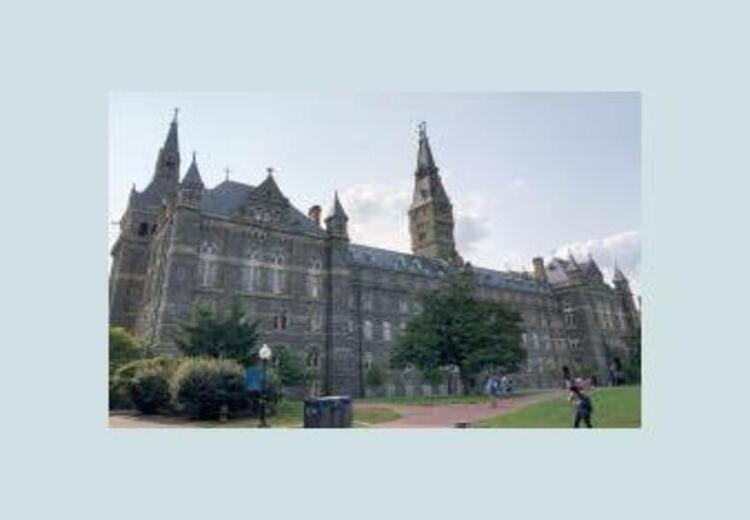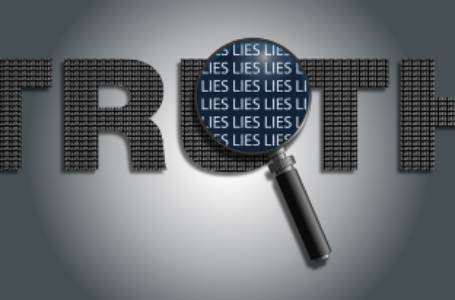Georgetown Law Prof Fired for Telling the Truth

Georgetown University_DANIEL SLIM-AFP via Getty Images
 By Hans Bader | March 11, 2021
By Hans Bader | March 11, 2021
A law professor at Georgetown University has been fired for pointing out that black students got lower grades in her classes. This was not due to racism. Black students get lower grades at selective colleges because they are admitted with lower grades and test scores than their non-black classmates, due to racial preferences in admissions at schools like Georgetown.
Recipients of non-racial preferences in admissions also get lower grades at the schools that admit them. I received lower than average grades as a student at Harvard Law School. Why? I was admitted with lower-than average credentials than most of my classmates (because I pledged to go into public-interest law afterwards). So I was less prepared than most of my classmates, and occasionally had to struggle to keep up with my classmates. This did not mean I flunked out of school: I later passed the bar exam, and later played a key role in litigating three Supreme Court decisions dealing with federalism and the constitutional separation of powers, one of which is discussed in the Washington Times.
NBC News reported earlier on the brewing controversy at Georgetown, which led to an investigation of Professor Sandra Sellers:
Some Georgetown University Law students and alumni are calling for the termination of a professor captured on video discussing the performance of Black students.
“I end up having this angst every semester that a lot of my lower ones are Blacks, happens almost every semester,” the professor said in the video.
The conversation between two law professors at the Washington, D.C., school was filmed and posted to the online database Panopto, where students, who have been attending classes virtually because of the pandemic, can access the recordings. The video is no longer available on the platform.
“We learned earlier this week that two members of our faculty engaged in a conversation that included reprehensible statements concerning the evaluation of Black students,” Georgetown Law Dean Bill Treanor wrote in a letter sent to the university Wednesday.
“We are responding with the utmost seriousness to this situation,” he wrote, adding that the University’s Institutional Diversity, Equity and Affirmative Action Office has opened an investigation.
“The Law School is also pursuing additional responses and will act swiftly and seriously to address this incident,” he said.
The professor was targeted simply for telling the truth, says Ted Frank, a lawyer who has won over $100 million in lawsuits, and several landmark court decisions: “The only thing reprehensible here is the statement of the Dean throwing his faculty member under the bus instead of telling students unpleasant truths. GU Law grading is blind and anonymous!”
So the professor is not saying he engaged in any kind of racism. As Frank notes, “African-American law students good enough to get into Georgetown Law end up going to Harvard and Stanford instead” because of those universities’ racial preferences in admissions. As a result, “Georgetown Law has to” lower standards for black applicants, and “dive deeper into the pool to get a racially balanced class.” As a result of these lower standards for black students, “African-Americans attending Georgetown Law are less qualified than average students, and perform worse in school.”
As Frank notes, it is utterly predictable that black students will get lower grades at Georgetown, given their lower grades and standardized test scores: “Georgetown uses LSATs in admissions for a reason: they do a good job of predicting who will do well in law school. What do you expect will happen if you mix students with LSATs in the 150s with students with LSATs a standard deviation higher?”
This firing violates the “academic freedom” that Georgetown University contractually promises its faculty, which implement the “core principles” of academic freedom laid down by “the American Association of University Professors” (AAUP).
Such academic freedom has been contractually interpreted to protect speech even when it offends minority students. For example, the Wisconsin Supreme Court ruled that a professor opposed to same-sex marriage could not be punished for his speech by a private college, even though it allegedly led to members of the public expressing hostility to a lesbian graduate student. (See McAdams v. Marquette University (2018)).
Similarly, a judge ruled that an AAUP collective bargaining agreement guaranteeing academic freedom barred punishing a professor for two classroom sexual analogies that offended campus feminists. (See Silva v. University of New Hampshire (1994)).
Far worse speech has been held to be protected by the First Amendment under the rubric of academic freedom. For example, a federal appeals court ruled that a professor’s derogatory writings about black people were protected by the First Amendment. (See Levin v. Harleston, 966 F.2d 85 (2d Cir. 1992)). It also ruled that a professor had a First Amendment right to teach that Zionism is racism, even though that caused a “furor” on his campus. (See Dube v. State University of New York (1990)).
Hans Bader practices law in Washington, D.C. After studying economics and history at the University of Virginia and law at Harvard, he practiced civil-rights, international-trade, and constitutional law. He also once worked in the Education Department.
CNSNews Reader,
The media are hard at work weaving a web of confusion, misinformation, and conspiracy surrounding the COVID-19 pandemic.
CNSNews covers the stories that the liberal media are afraid to touch. It drives the national debate through real, honest journalism—not by misrepresenting or ignoring the facts.
CNSNews has emerged as the conservative media’s lynchpin for original reporting, investigative reporting, and breaking news. We are part of the only organization purely dedicated to this critical mission and we need your help to fuel this fight.
Donate today to help CNSNews continue to report on topics that the liberal media refuse to touch. $25 a month goes a long way in the fight for a free and fair media.
And now, thanks to the Coronavirus Aid, Relief, and Economic Security (CARES) Act, you can make up to a $300 gift (or $600, if married filing jointly) to the 501(c)(3) non-profit organization of your choice and use it as a tax deduction on your 2021 taxes, even if you take the standard deduction on your returns.
— The CNSNews Team















